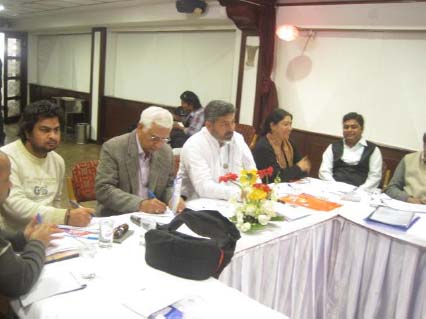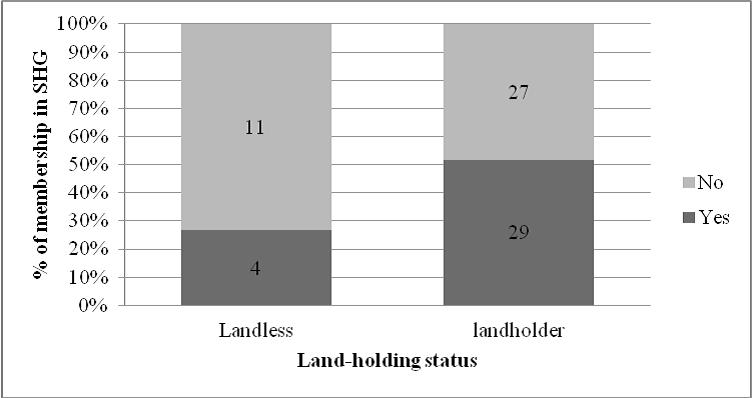Rainfed Agriculture
Draft National Water Policy 2012 - Dialogue organised by NEER Foundation, Meerut on February 18, 2012
Posted on 27 Feb, 2012 10:07 AMGuest post by: Raman Kant Tyagi

Construction empties Kashmir's rice bowl: How unplanned 'development' has led to a shortage of this staple crop
Posted on 24 Feb, 2012 03:16 PMVideo courtesy: VideoVolunteers
Social exclusion in watershed development: Evidence from the Indo-German watershed development project in Maharashtra - A LEAD paper
Posted on 18 Feb, 2012 03:08 PMMarginalized communities are excluded from a say in the creation of policies.

"Understanding and resolving water conflicts in the North East": Workshop held at Guwahati, 23-26 January 2012
Posted on 16 Feb, 2012 01:31 PMGuest post by: Raju Mimi
Adapting to climate change - Conserving rice biodiversity of the Apatani tribe in North East India - An IGREC working paper
Posted on 15 Feb, 2012 11:47 PMIt also deals with the threat to the biodiversity in the area due to climate changes and argues for the need to devise adaptation strategies at an urgent level to preserve the unique genetic variability of the region and the indigenous knowledge of farming practices in the area.
Adaptation to climate change with a focus on rural areas and India - A document by GTZ (India)
Posted on 15 Feb, 2012 01:59 PMIt aims to strengthen the capacities of rural communities in India to live with climate variability and change. The work includes supporting governments of four partner states of Rajasthan, Tamil Nadu, Madhya Pradesh and West Bengal, local communities and other relevant stakeholders in identifying, developing and carrying out adaptation measures in pilot regions.
Living rivers, dying rivers: Rivers in the Western Ghats
Posted on 10 Feb, 2012 04:12 PMRiver stories from Maharashtra: Many morals to learn
Parineeta Dandekar’s presentation began with an account of some statistics related to Maharashtra, the third largest state in India. Regarding the state of water resources in Maharashtra, she noted that of the five river basin systems, 55 percent of the dependable yield is available in the four river basins (Krishna, Godavari, Tapi and Narmada) east of the Western Ghats. These four river basins comprise 92 percent of the cultivable land and more than 60 percent of the population in rural areas. 45 percent of the state's water resources are from west flowing rivers which are mainly monsoon specific rivers emanating from the Western Ghats and draining into the Arabian Sea.
With 1821 large dams and more in the offing, Maharashtra has the maximum dams in the country (35.7%). However, the proportion of gross irrigated area vis a vis the gross cropped area at 17.8 percent is much lower than the national average of 44.6 percent. The contradictions from the state, which is home to the highest number of dams, were discussed. In nearly 70 percent of the state’s villages (around 27,600 villages), water is either not available within 500 metres distance, or within 15 metres below ground level or when available is not potable (World Bank, Promoting Agricultural Growth in Maharashtra, Volume 1, 2003).
Dandekar discussed the World Bank funded Maharashtra Water Sector Improvement Project (MWSIP) initiated in 2005 whose main components were establishment, operationalisation and capacity building of Maharashtra Water Resources Regulatory Authority (MWRRA); establishment of river basin agencies in Maharashtra; and restructuring and capacity building of the Water Resources Department. The MWRRA Act (2005) has been amended, taking out the clause for equitable water distribution, and granting the Cabinet the rights to have the last say about water entitlements. This has led to a diversion of water for irrigation from the vulnerable, suicide-prone Vidarbha region to thermal power plants. According to Prayas, “entitlements of more than 1500 MCM have been changed from agriculture to industries and cities”.

Water conservation, sustainable agriculture, challenges for rural development in Maharashtra and possible solutions - Talk by Popatrao Pawar, Sarpanch, Hivre-Bazar
Posted on 09 Feb, 2012 04:49 PMShri Popatrao Pawar is an inspiring promoter of the 'Ideal Villages Movement' on "Integrated Agriculture and Rural Development for Tomorrow's Maharashtra" on the occasion of the inauguration of Observer Research Foundation's Maharashtra@50 Study Centre on 24th June 2010.
Alternative National Water Policy: Ramaswamy Iyer's response to comments by Rahul Banerjee and Chetan Pandit in EPW
Posted on 04 Feb, 2012 06:44 PMGuest post: Ramaswamy R Iyer
This is in response to the comments made by Rahul Banerjee (“National Water Policy”, 13 August 2011) and Chetan Pandit (“Alternative National Water Policy: A Critique”, 10 September 2011) on my article “National Water Policy: An Alternative Draft for Consideration” (25 June 2011).
Epigrammatic Style




